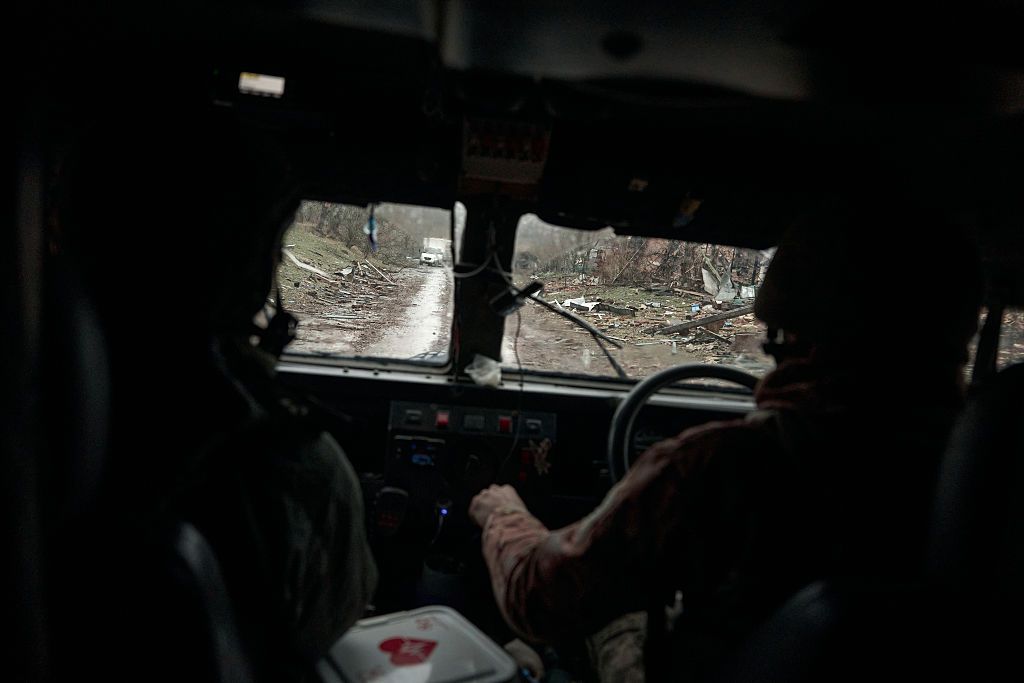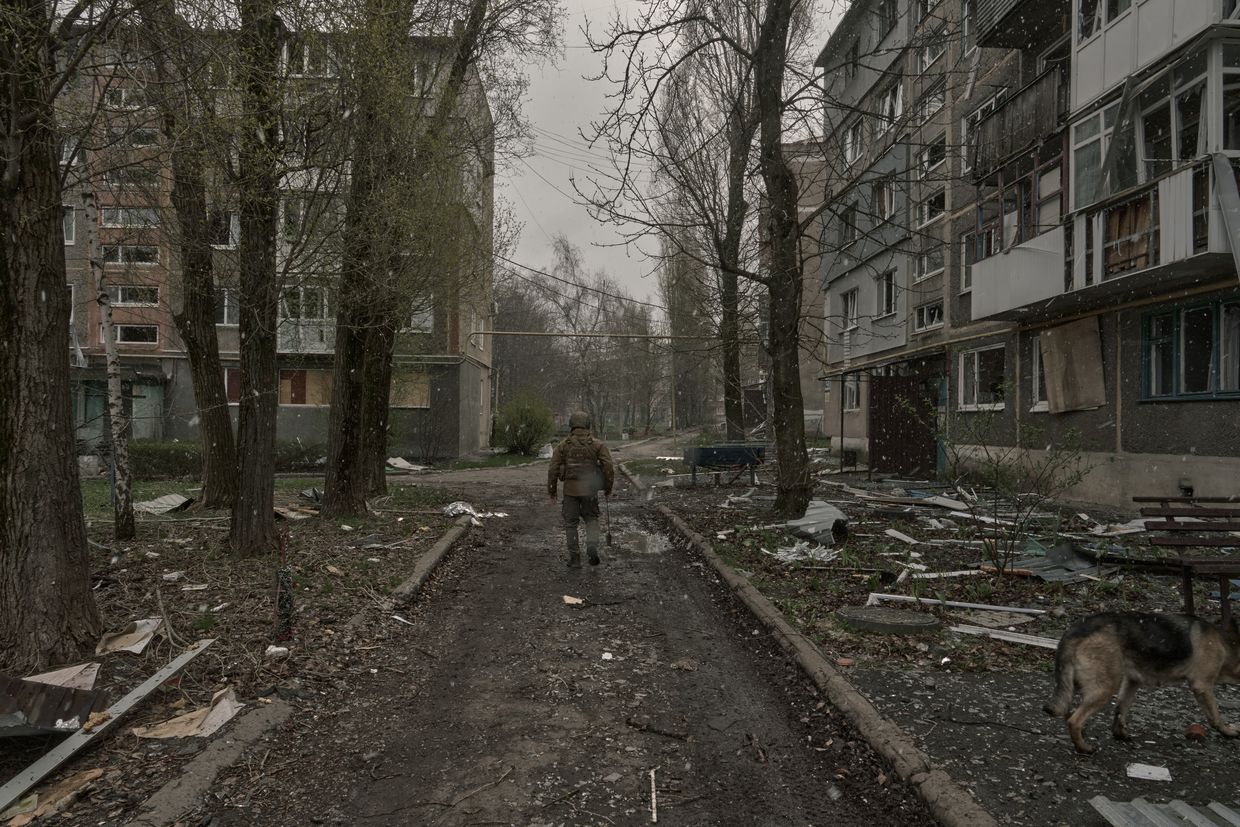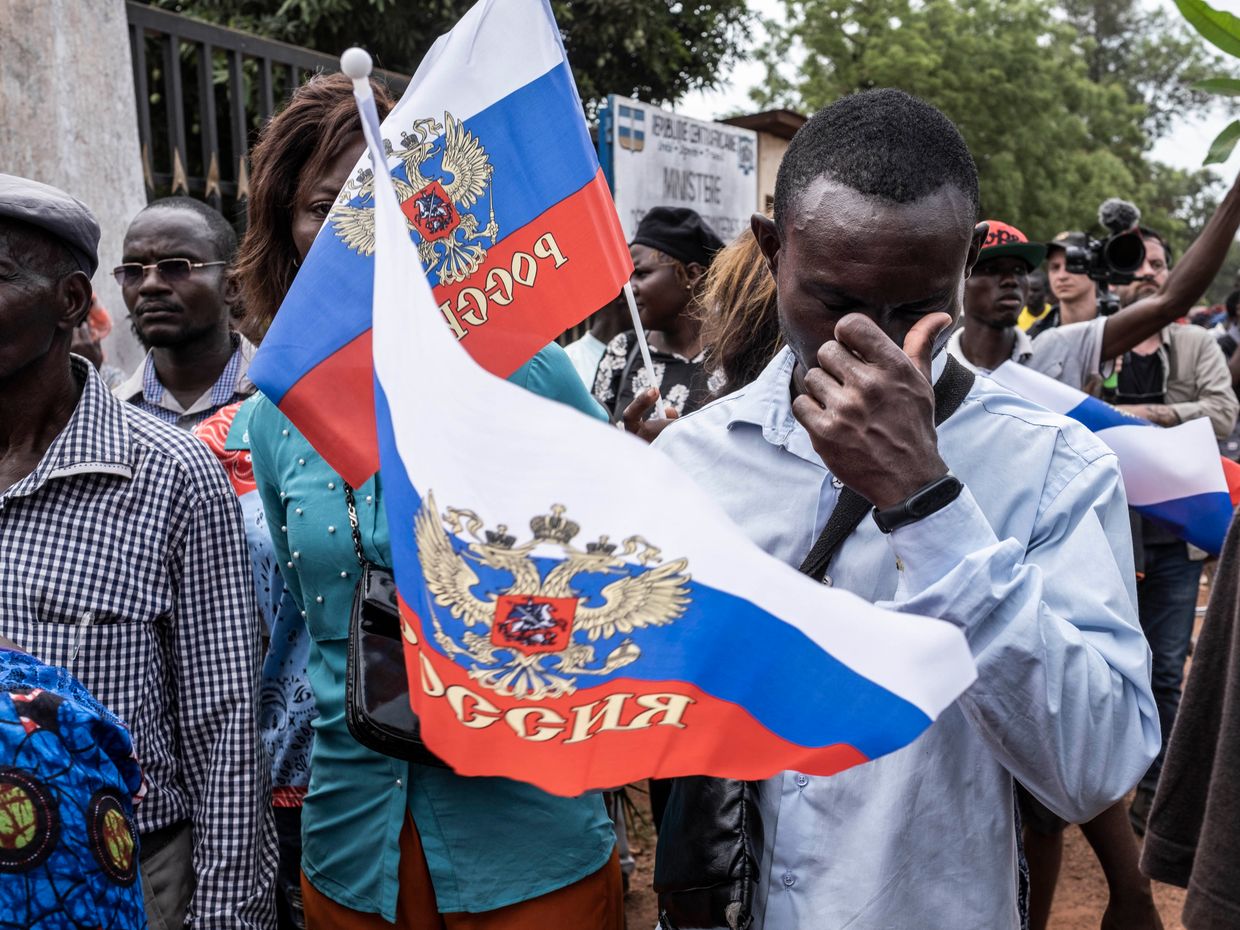Halfway down a narrow corridor painted all in gray, the guard wrestles with a bulky lock to gain entry to the prison cell.
Inside are around twenty young men, sitting on a criss-crossing pattern of metal bunk beds.
In the corner of the room, plastic cups and books are stacked up on either side of an old television.
Their faces give away that they haven’t been held here for long, although they express it in different ways.
Some of them have their heads buried in their hands, some look off into the distance, but most of them look up at their visitors with a lot of self-pity and still a little fear in their eyes.
These are Russian prisoners of war (POWs), but not of the type that mostly inhabit Ukraine’s POW camps.
Unlike the contract soldiers, mobilized, or the convicts who make up the bulk of Russian forces fighting in eastern Ukraine, most of the prisoners here are conscripts: men mostly in their early twenties and late teens from all over Russia, who had been undergoing their mandatory 12 months of military service.
When Ukraine launched its surprise incursion into Russia’s Kursk Oblast on Aug. 6, these conscript soldiers were captured in hundreds, showing little resistance to the well-coordinated Ukrainian attack.
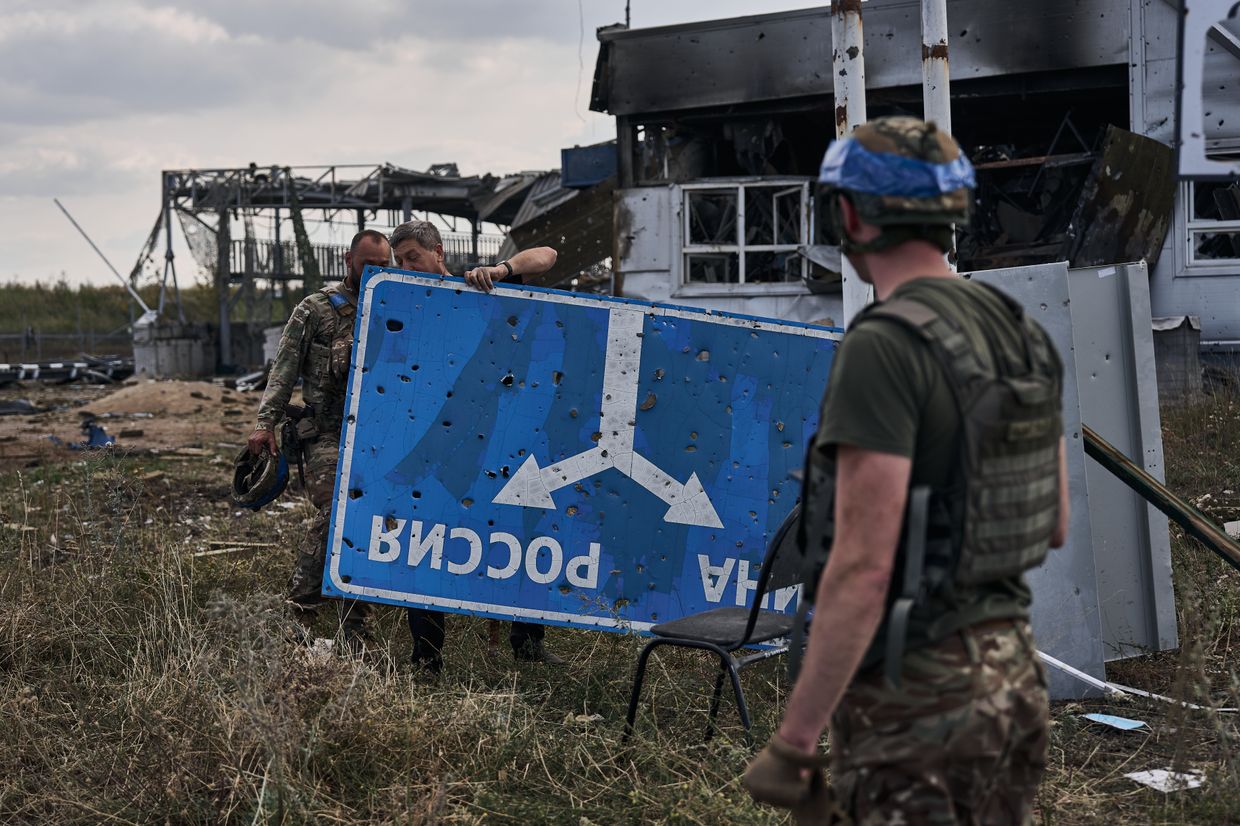
The Kyiv Independent was granted access to a Ukrainian prison where POWs captured during Kyiv’s operation in Kursk Oblast are being held before exchange or further processing.
The testimonies gathered, from two conscripts and one contract soldier, give a rare insight into the mindset of ordinary Russians who agree to serve in the military of an aggressor state, two and a half years into its brutal full-scale war against Ukraine.
In keeping with international law and with independent legal consultation about interviewing prisoners of war, the Kyiv Independent only spoke to those who volunteered to speak on camera, and also asked every subject individually if they gave permission for the interviews to be recorded and published. The two conscript soldiers declined to give their last names.
Despite hailing from neighboring Bryansk Oblast, which also borders Ukraine, 20-year-old Denis claims to have not paid any attention to the war before his service began.
“Of course, I saw it all on the Internet; I came across it. But somehow I didn't delve into the details of why this war was happening. So how can I reflect on it?” he told the Kyiv Independent.
“I only heard that our army was advancing further and further into Ukraine. And I was indifferent to it.”
After some Russian conscripts found themselves involved in the fighting at the outset of Russia’s full-scale invasion, Russian President Vladimir Putin was quick to come out and publicly assure the Russian people that conscripts would not be sent into combat in the future.
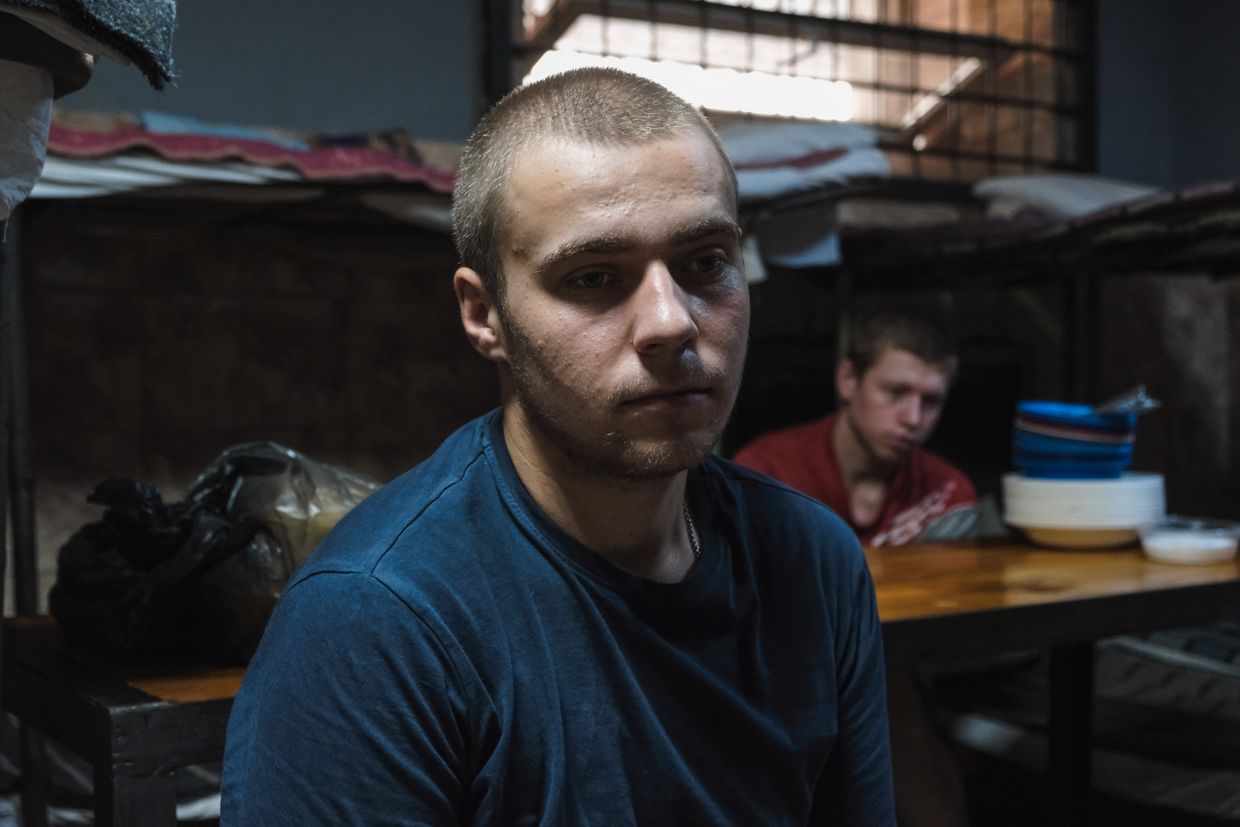
Once his summons came, he says, Denis did not resist, believing he would stay far away from combat.
“I didn't want to get into military action in any way,” he said.
“I just wanted to serve for a year and return home to my family and loved ones.”
Another conscript who agreed to speak to the Kyiv Independent was Nikolai, a 22-year-old former engineering student from the industrial city of Chelyabinsk in Russia’s Ural mountains.
“I was shocked when the war started in February 2022 with a brotherly nation, as I thought at the time,” he said of his understanding of the war before service. “I still think that way. I communicated with some Ukrainians before the war; everyone was normal and friendly.”
Of a skinny build and with thick glasses, Nikolai says he dropped out of university for financial reasons, upon which, as he was no longer exempt from military service under Russian law, he was quickly drafted.
“My parents were against it, but we weren’t wealthy, and there was no way to pay our way out,” he recalled.
“Half a year passed calmly, but when my parents found out I was going to the border, they were more worried than I was. Putin had said conscripts wouldn’t be involved in the special military operation, so I was relatively calm.”
With hundreds of thousands of professional troops caught up in Moscow’s broad offensive posture in eastern Ukraine, conscripts ended up being deployed on the state border in the north of the country.
These postings were far away from the combat zone and relatively quiet, bar the occasional drone activity from both sides across the border.
But on Aug. 6, everything changed when experienced Ukrainian brigades poured across the border.
Though Denis and Nikolai were serving in different units: their experience of the first days of the Ukrainian incursion shares common themes: chaotic communication, commanders disappearing at the first opportunity, and a total lack of preparedness for what they ended up facing.
“On Aug. 6, at around 4:00-4:20 a.m., our outpost was hit by three rockets, which we later found out were HIMARS,” said Nikolai. “Two rockets hit the command center, killing two conscripts and two officers. Another rocket landed close to our dugout, collapsing it partially, making it unsuitable for further shelter.”
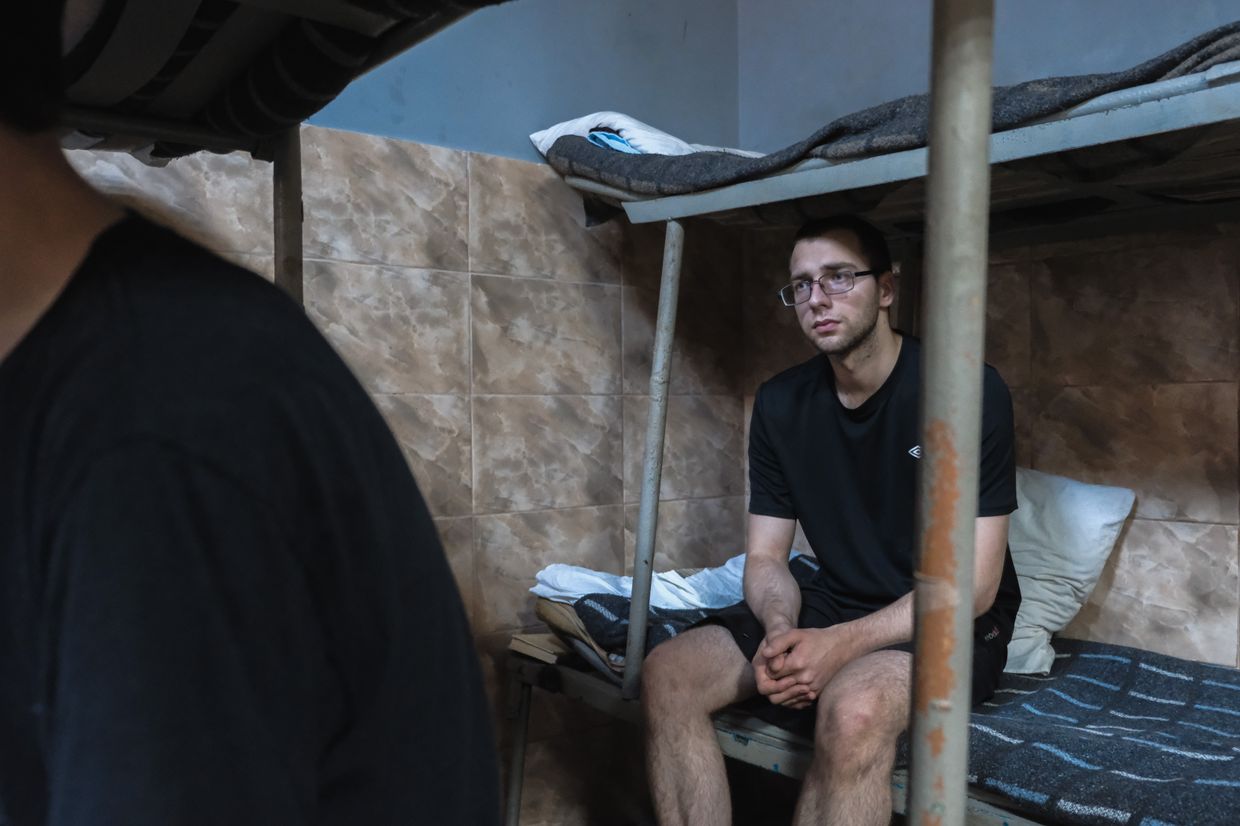
“We were left without communication, there was no power either. We didn't see our commanders; they just disappeared after lunch. What to do? We decided it was time to head to Sudzha since we were told there was an evacuation.”
After a two-day slog through the fields that had now become the gray zone of the new Kursk sector, Nikolai’s group was finally taken prisoner on Aug. 8.
“Ukrainian soldiers ran out, surrounded us, and told us to drop our weapons and surrender,” he recalled.
“They promised not to harm us. We believed them because they had numerical superiority — no one wanted to die for the commanders who had abandoned us.”
In Denis’s case, his unit’s commander did initially stay together with the conscripts as they made their own chaotic retreat through swamps and forest to the village of Goncharovka, near the town of Sudzha.
“We holed up in a house, and the next morning, the sentry woke everyone up and said that Ukrainian soldiers were nearby,” recalled Denis, “but when we saw them through the window, we realized that half of our group was missing.”
“Half of the group had simply escaped somewhere during the night, and we understood perfectly well that even if we tried to fight, they would either throw grenades at us or just shoot us all. So when a Ukrainian soldier climbed into the house through the window, we shouted that we were conscripts and that we were surrendering.”
In the end, overwhelmed by the swiftness of the Ukrainian attack and their own lack of coordination, hundreds of Russian conscripts were left out to dry by their own command.
“That’s the question I had when I woke up, where was the commander?” said Denis.
In a smaller, neighboring cell, the inhabitants are a mix not only of young conscripts, but also of those who voluntarily signed a contract to serve in the Russian army.
Although Moscow did announce a so-called “partial mobilization” in Russia back in autumn 2022 after suffering major battlefield setbacks, over 2023 and 2024 the bulk of the regular Russian army (not including convict units and foreign mercenaries) is made up of contract soldiers.
Visibly decades older than their conscript cell mates, the contract soldiers are generally less keen to engage in eye contact, let alone conversation.
Despite the openly-available information about the war and the massive losses suffered by the Russian military in Ukraine, droves of Russian men continue to enlist every month, tempted by lucrative sign-up fees and salaries far outweighing the average incomes of most Russian regions.
One such man is 42-year-old Vitaly Chugaevsky, from Novgorod Oblast, not far from St. Petersburg.
Hunched over with a slight build and quiet voice, he sports a light wound on his nose, while his hand, also lightly wounded, is neatly bandaged in a fresh dressing.
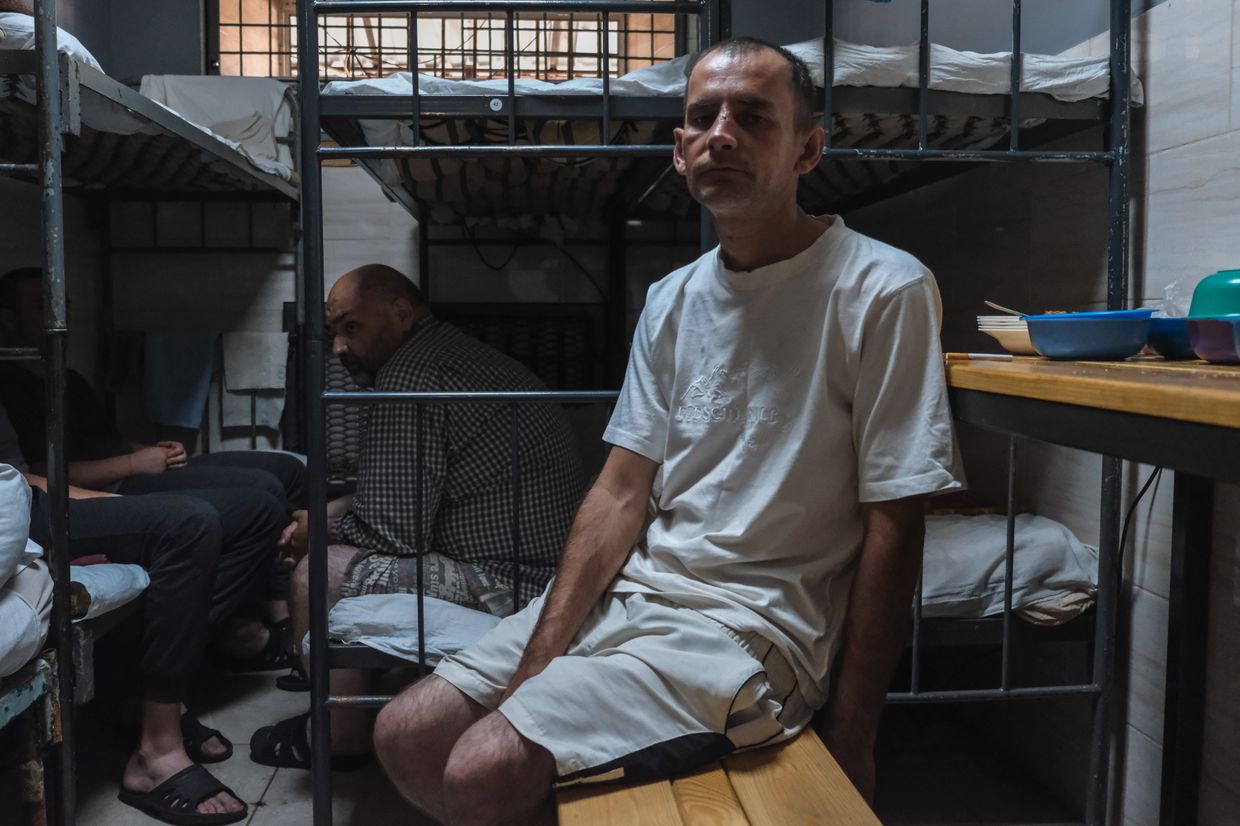
Despite his active choice to enlist in an army at war, Chugaevsky insisted that the decision was purely financial.
“I never wanted to be part of this conflict. I didn’t enlist to fight; I just wanted a job,” he said. “I watched a lot (of videos) on YouTube that said that the war would end in the fall; they said it would be over by November.”
In Russia, new recruits like Chugaevsky were offered a sign-up bonus of 200,000 rubles (approx. $2,200) just for joining, a sum that was recently doubled by the Kremlin in a sign that Russia is struggling to find more people willing to fight in Ukraine voluntarily.
On top of that, regional and city governments, like St. Petersburg, where Chugaevsky deliberately traveled to sign up, offer additional payments, as do large industries.
All-in-all, including his first paycheck, he expected to receive a total of 1.3 million rubles (approx. $14,340) from the state.
"I didn’t enlist to fight. I just wanted a job."
“They promised me a job as a driver,” said Chugaevsky, who had thought that various health problems would save him from being sent to the zero line.
“On the first day (at the training center), I realized I wasn’t going to be a driver when I arrived at the location; they said I would most likely be an assault soldier.”
Chugaevsky was captured about a week later than the conscripts, as his unit was thrown into battle without preparation in an unsuccessful attempt to stop the Ukrainian advance.
“We kept hearing mortar fire and tried to hold our position. Eventually, we were ordered to retreat. During the retreat, we got separated, and it became every man for himself,” he said.
“I was moving alone through fields and forests, trying to find my way back to our positions. I ran out of food and water. Eventually, on the third day, I stumbled upon a Ukrainian patrol. They spotted me, surrounded me, and I surrendered.”
Now, with hindsight, Chugaevsky says he regrets it all.
“I wish I could turn back time and not be involved at all. I just want to go home, back to my family, and never be part of this again,” he said.
“The way we were thrown into this war without any support or proper command — it’s unacceptable. This whole thing was avoidable.”
All of the POWs interviewed by the Kyiv Independent said that they were surprised at the treatment they received in captivity, which went against Russian propaganda narratives saying they would be tortured or killed.
According to the deputy head of the facility, the POWs receive meals three times a day and tea twice, though the lack of a cigarette ration can be painful for them.
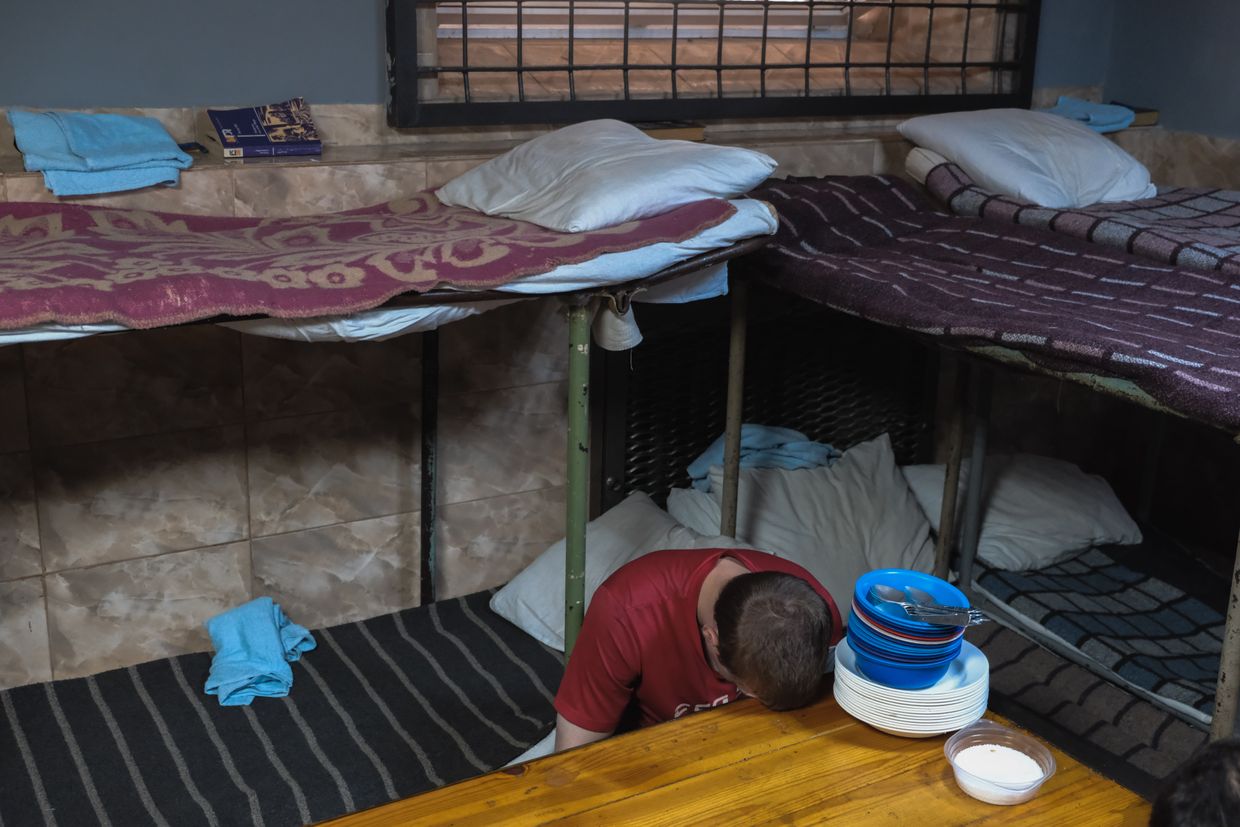
Given the fact that they are young men who were never meant to see combat, Russia’s conscript soldiers captured in Kursk were quickly prioritized by Moscow for exchange, partly to absolve themselves of the embarrassment of letting them be captured in the first place.
Sure enough, on Aug. 24, 115 conscripts were exchanged for 115 Ukrainian POWs, including some soldiers who had defended the Azovstal plant during the siege of Mariupol in 2022.
Despite having seen the war with their own eyes and participating in it directly, Nikolai still didn’t see himself or ordinary Russians as bearing any responsibility for their country’s war against Ukraine, a painful sticking point for most Ukrainians regarding Russians who claim to be against the war.
“The main thought is that I’m a small person, I can’t do anything,” he said. “Our TV shows that most Russians support the war, but I think that’s not the case. People don’t talk about it much; they think they’re the only ones ‘against Russia’ in their circle, so they keep quiet. Russia doesn’t hear their opinions.”
“The main thought is that I’m a small person, I can’t do anything.”
Chugaevsky, who had joined up on an objectively ignorant basis of understanding, was more thoughtful at the end of his interview.
“We were misled, used as pawns. The real people suffering are those on the front lines and their families. This war should never have happened.”
“Don’t believe everything you hear,” he added, when asked if he had any messages for Russian people back at home.
“This war isn’t glorious; it’s not a heroic fight. It’s chaos, it’s death, and it’s pointless. I hope people start to see the truth and demand an end to this madness.”
Note from the author:
Hi, this is Francis Farrell, reporting from yet another awfully weird day in Russia's war against Ukraine. As much as I have enjoyed all the fantastic memes about the Kursk Oblast incursion, it is always worth remembering that these are real people, real Ukrainians out there taking this risk on. In a case like this, when the fog of war is thicker than ever, we are working hard to bring what we know straight to you. Please consider supporting our reporting.











